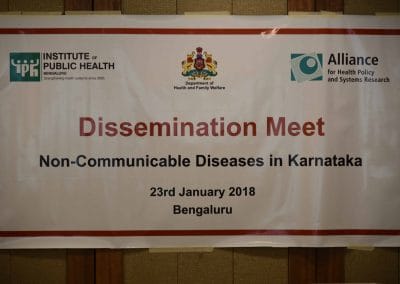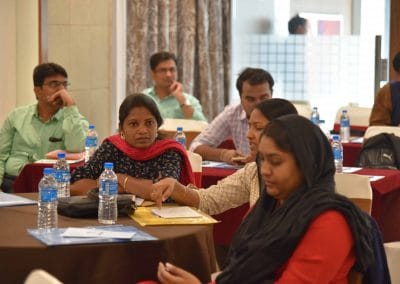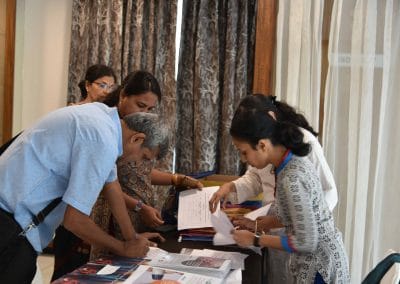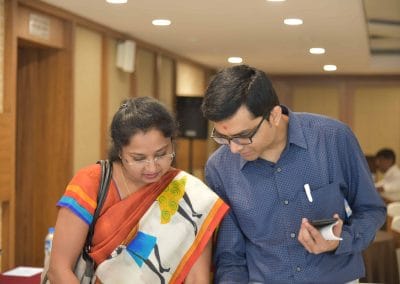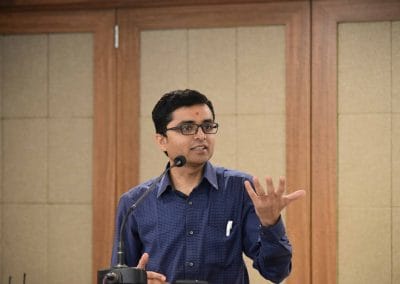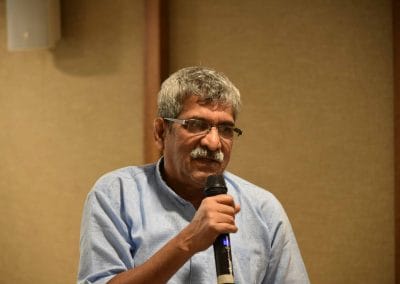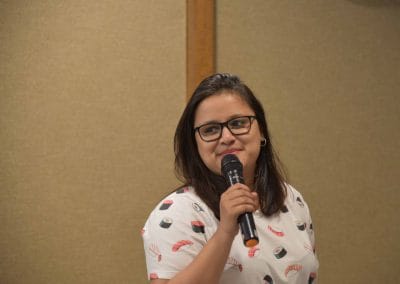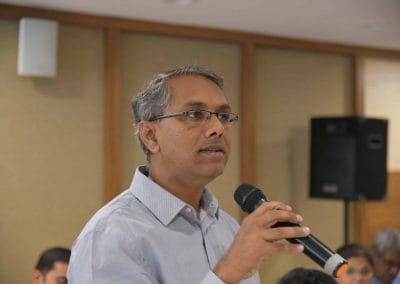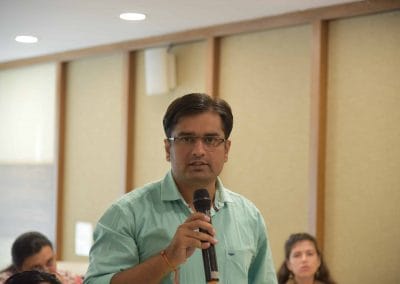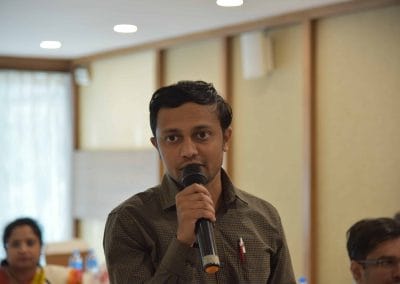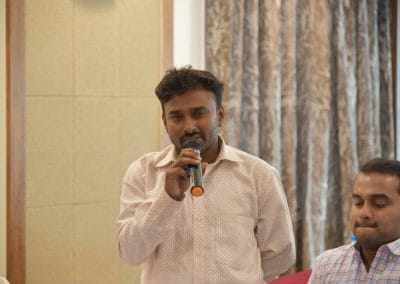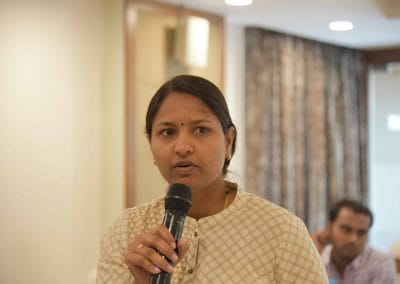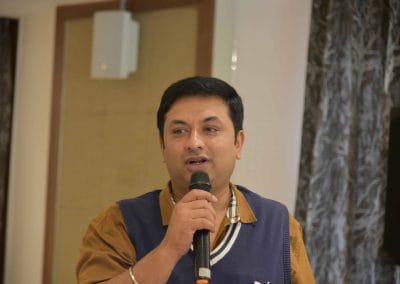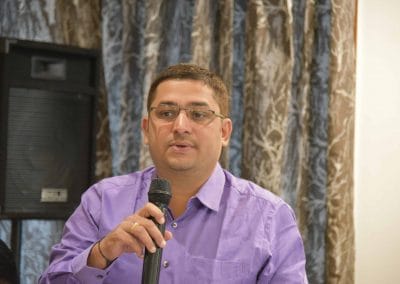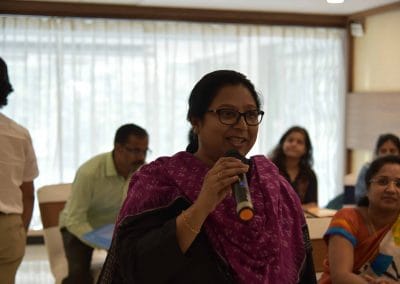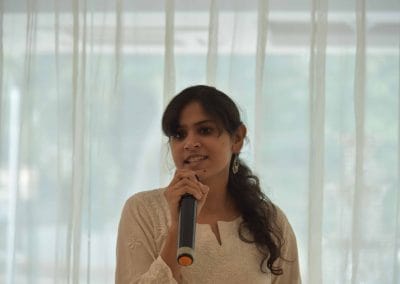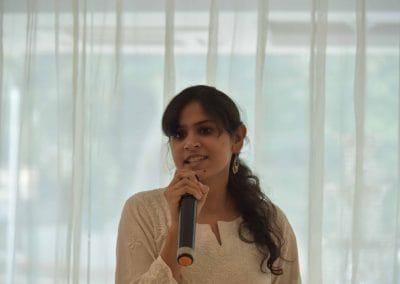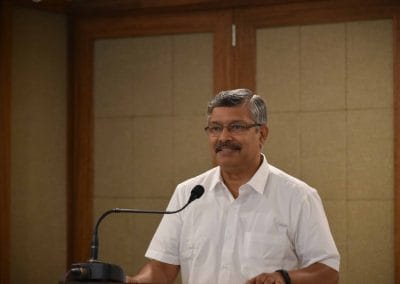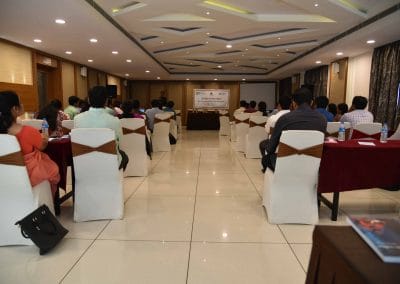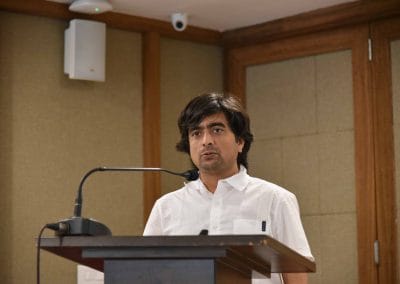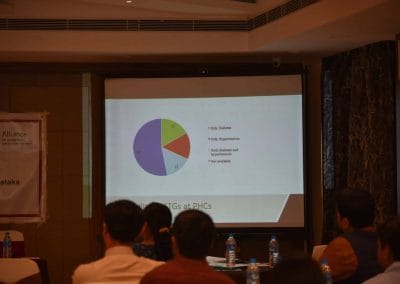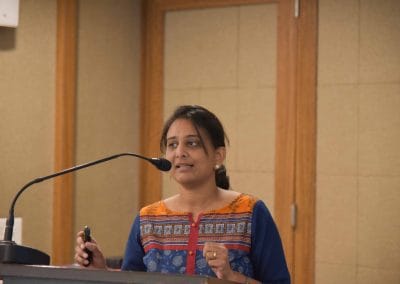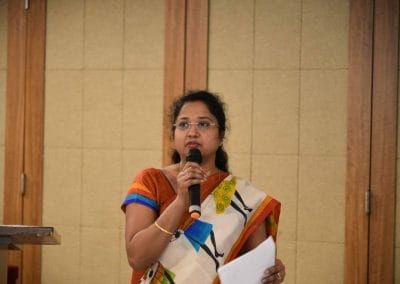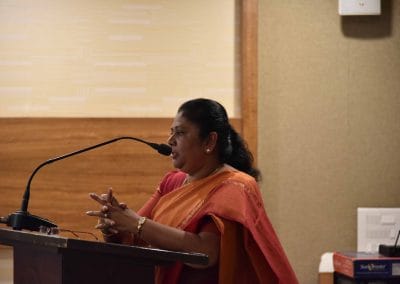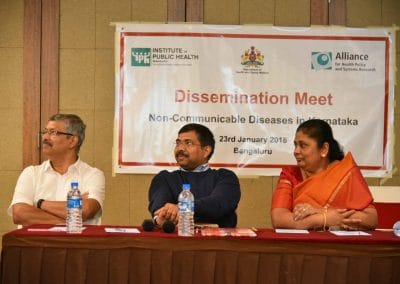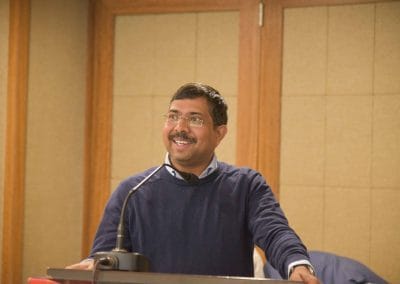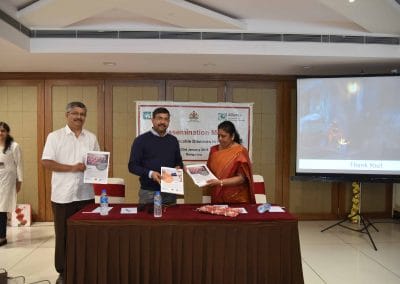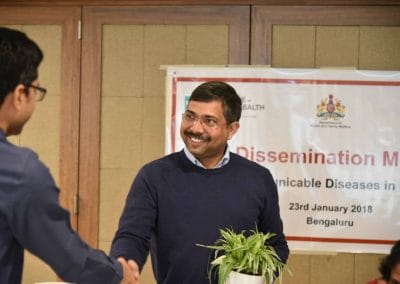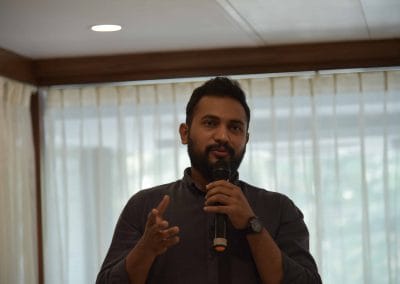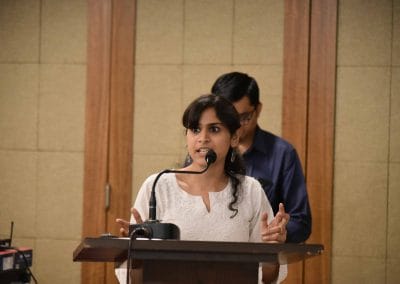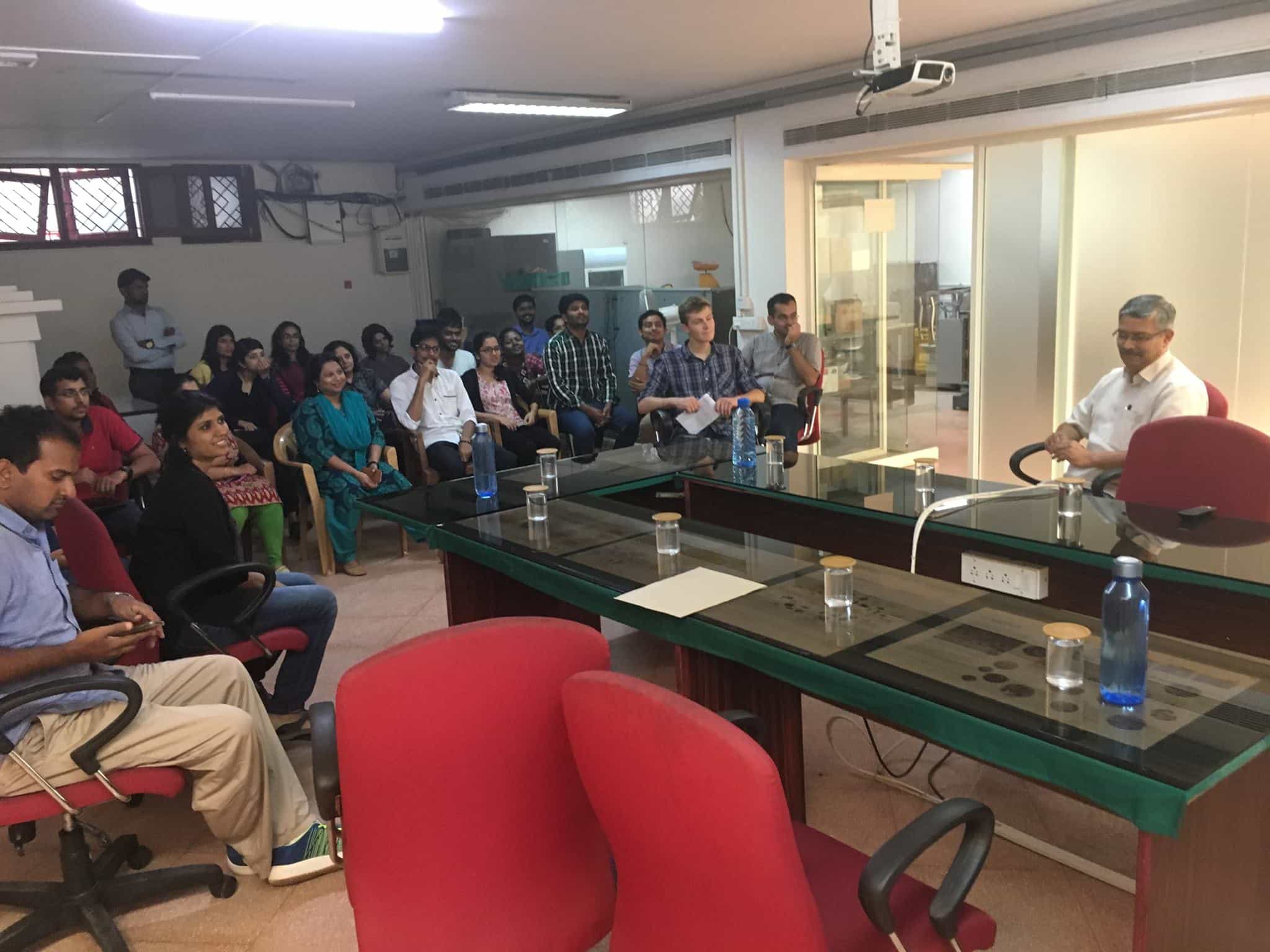
NCD Dissemination Meet
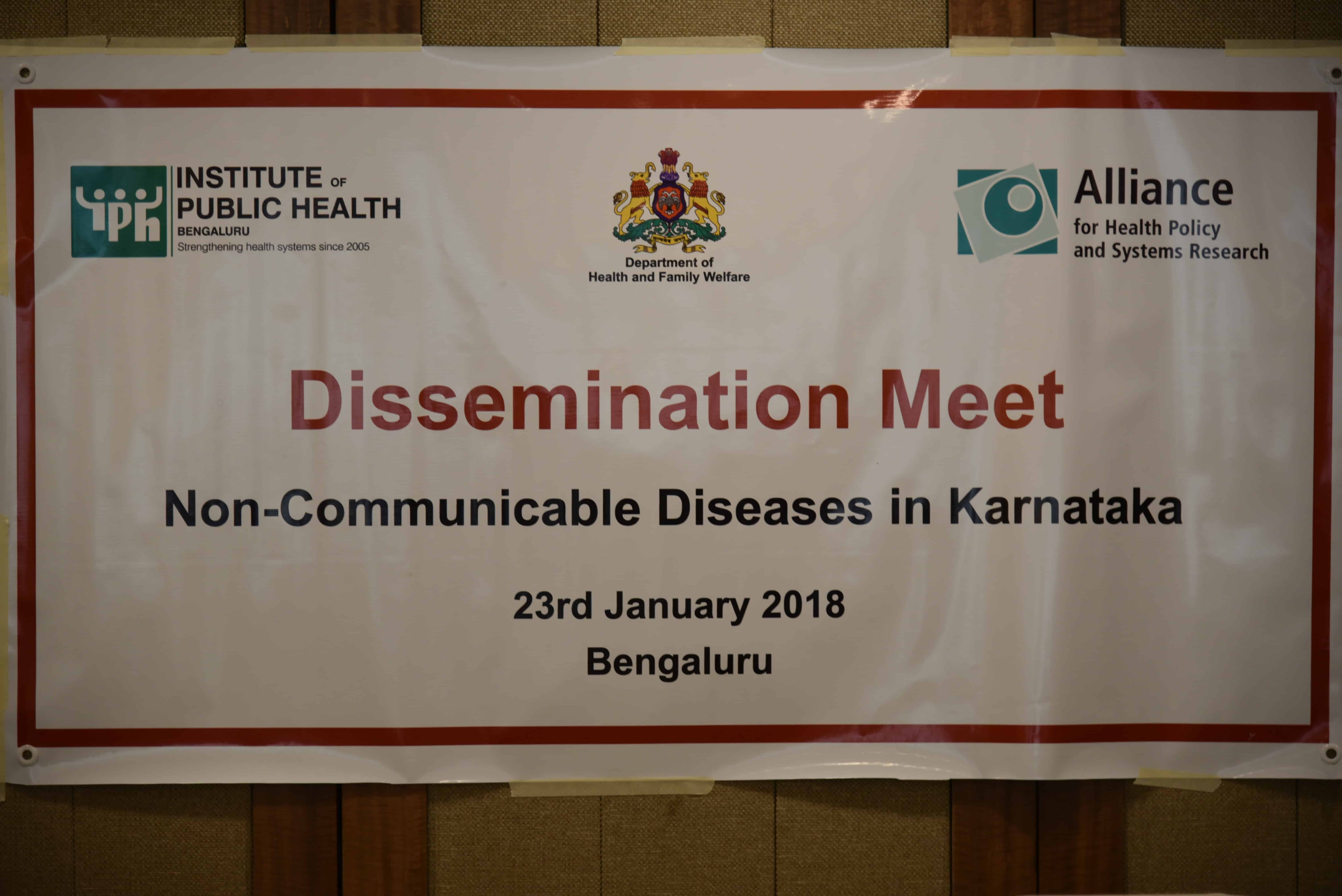
Date
23-January-2018
Time
10.30-01.30 pm
Venue
West Fort Hotel
No. 19/6, Minarava Mills Compound,, Magadi Road,
Next to Mysore Sugandh Dhoop Factory,
Bengaluru, Karnataka 560023
Institute of Public Health, Bangalore, conducted a dissemination meet on January 23rd, 2018 with the agenda of sharing the findings of more than five years of health systems research in improving care provision for NCDs in Karnataka. The institute has worked very closely with various stakeholders especially the Government of Karnataka, in strengthening various aspects of the public health system to improve the preparedness of the system to tackle the issues brought about by the increasing burden of communicable diseases.
The agenda of the meeting was as follows:
| Session | Time |
| Inauguration /Introduction to the meet | 10:30-11:00 |
| NCDs and rural health systems | |
| Enhancing access to NCD medications (Research study in Tumkur) | 11:00-11:20 |
| Strengthening NCD care delivery (Doctoral research in Kolar) | 11:20-11:40 |
| Break | 11:40-12:00 |
| Role of local health systems in NCD care (Research study in Kadugondanahalli) | 12:00-12:20 |
| NCD and urban health systems | |
| Strengthening NCD care delivery (Operational research in Tumkur) | 12:20-12:40 |
| Panel Discussion – open house (Implications on existing NCD Initiatives) | 12:40-1:20 |
| Closing/Vote of thanks | 1:20-1:30 |
| Lunch | 1:30 – 2:30 |
The program began with an introduction by our Assistant Director, Dr. Upendra Bhojani, who briefed the audience about the program. The chief guests of the meeting were the Deputy Director, NPCDCS Dr Rekha and Senior Bureaucrat (Karnataka Adminstrative officer) and CFO, Kidwai Memorial CancerInstitute, Mr. Nischith V Daniel.
This was followed by brief self-introductions of the members in the audience who consisted of District Programme Coordinators (DPCs) who attended the program from various parts of the state. These coordinators are in-charge of implementation of the NPCDCS programme at the level of district and below. They were totally 19 of them from the 21 districts who had appointed DPC posts. We also had in the audience several experts working in the field of NCDs from various state and private institutions and civil society organisations such as Karnataka Health Promotion Trust, Maya Health, Karnataka State Health Science Resource center, SOCHARA, Karuna Trust, Selco foundation and so on. We also had several staff from our institute at the meet. A total of 47 participantns took part in the event.

